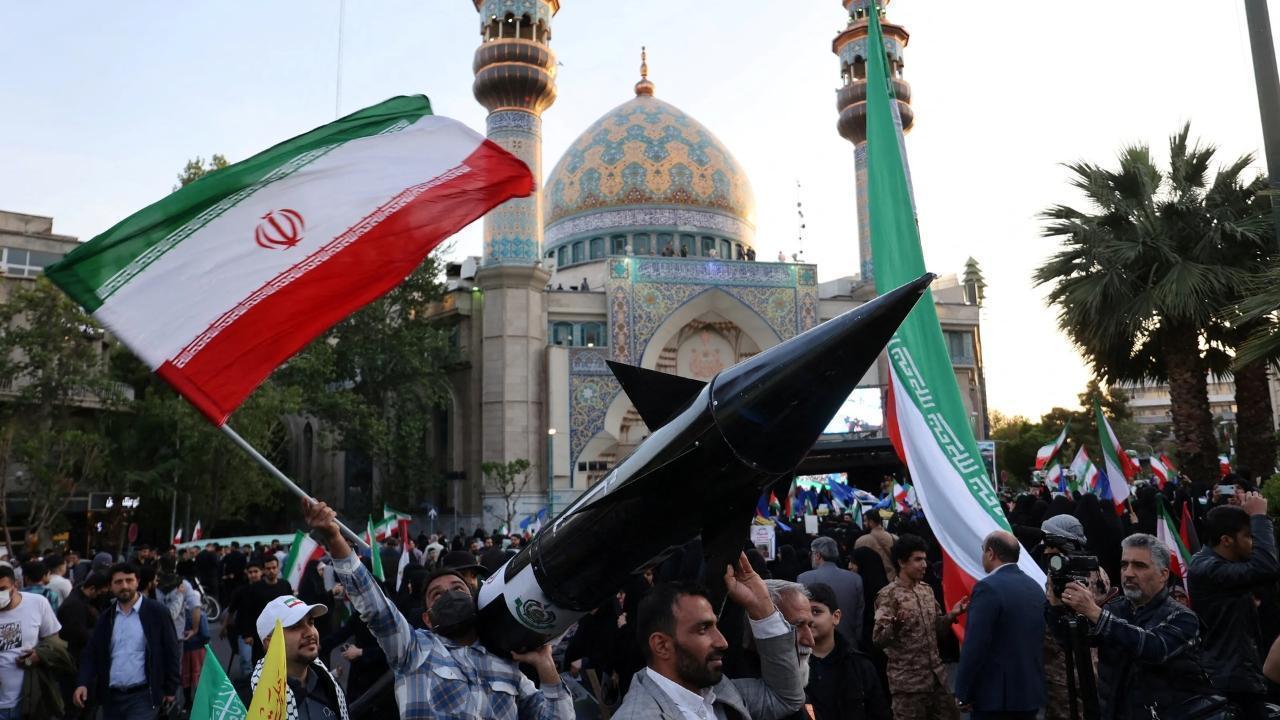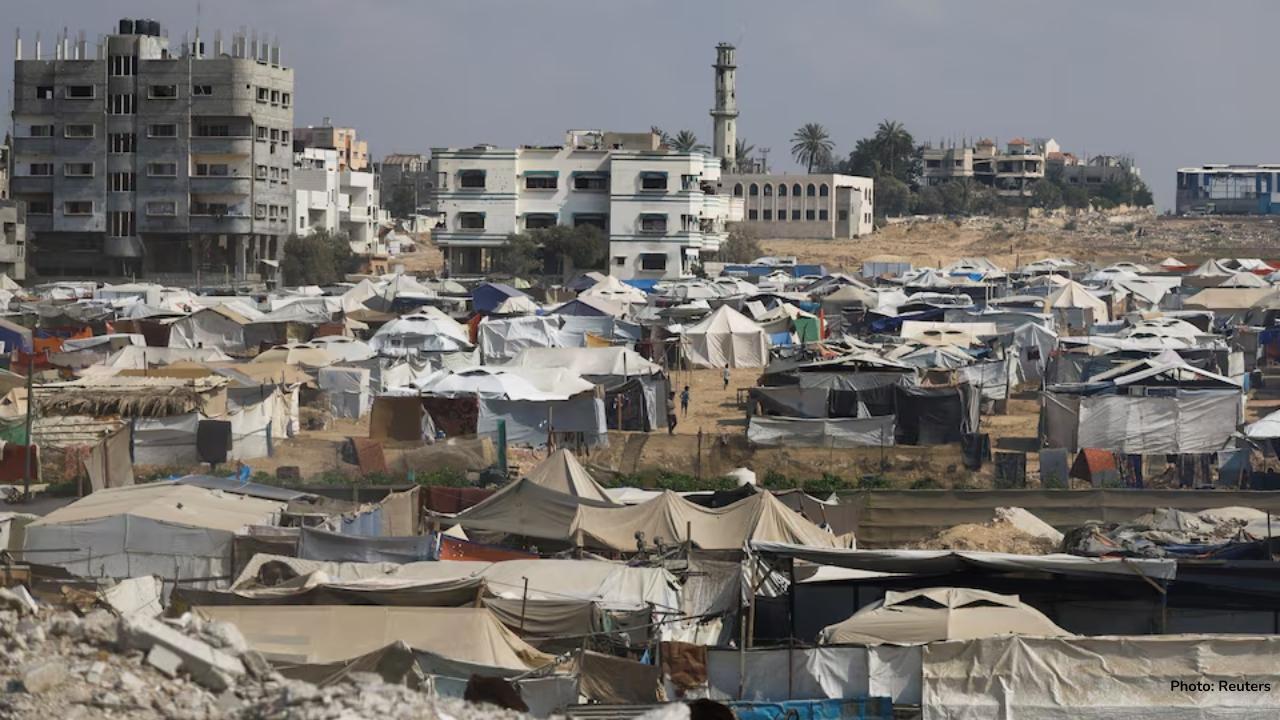
Post by : Monika
On September 30, 2025, the United States carried out the deportation of about 100 Iranian nationals back to Iran. This action followed a recently finalized agreement between the U.S. and Tehran, according to reports by the New York Times and confirmations from senior Iranian officials. A U.S. official familiar with the plan also confirmed the operation.
The deportation flight departed from Louisiana on Monday morning. The plane was chartered specifically for this purpose and will make a stop in Qatar before continuing its journey to Iran.
The identities of the Iranian nationals on the flight have not been disclosed, and neither the U.S. nor Iranian officials have publicly detailed the reasons for their deportation. The White House and the U.S. State Department have not yet released official statements regarding this action.
This deportation marks a notable development in the complex relationship between the United States and Iran. Over the past several decades, U.S.-Iran relations have been tense, characterized by sanctions, diplomatic stand-offs, and periods of limited engagement. In recent months, both countries have sought ways to reduce tensions, and this deportation appears to be part of broader diplomatic efforts.
The deportation is widely seen as part of a bilateral agreement aimed at addressing ongoing concerns and disputes between the two countries. Although the full terms of the agreement have not been made public, analysts suggest that it involves multiple aspects, including diplomatic cooperation, security arrangements, and possibly agreements on immigration or the treatment of certain individuals in each country.
Background of U.S.-Iran Relations:
The United States and Iran have had a complicated and often strained relationship since the Iranian Revolution in 1979. Over the years, issues such as nuclear development, regional conflicts, sanctions, and the detention of foreign nationals have contributed to tension. In recent years, the war in the Middle East, particularly in Syria and Yemen, along with Iran’s involvement in regional politics, has further complicated relations.
Previous administrations in the U.S. attempted to negotiate with Iran on nuclear and security issues, leading to agreements such as the 2015 Iran nuclear deal, officially known as the Joint Comprehensive Plan of Action (JCPOA). However, challenges in enforcement and political changes in both countries have made these agreements fragile. The recent deportation represents a more direct and immediate form of cooperation, signaling a potential thaw or shift in diplomatic engagement.
Details of the Deportation Process:
The flight carrying the Iranian nationals was organized and overseen by U.S. authorities. According to reports, the operation involved careful planning to ensure security, privacy, and compliance with international law. The stop in Qatar is intended to allow for refueling and possibly additional coordination with officials from both countries.
The individuals being deported were primarily Iranian nationals who had entered the United States under circumstances now considered non-compliant with U.S. immigration regulations. While the specific violations or reasons for deportation have not been disclosed, the operation is in line with existing U.S. immigration policies that allow for the removal of individuals who do not meet legal residency or visa requirements.
Reactions from Iranian Officials:
Iranian officials have responded cautiously to the deportation. They view the action as a positive step toward implementing the recent agreement with the United States, but they emphasize that continued dialogue and cooperation are necessary to address remaining issues. Iranian authorities also indicated that the deportees would be treated according to Iran’s legal and administrative processes upon arrival.
The deportation has been framed by Tehran as a sign of improved communication and trust between the two nations. Iranian officials have stated that such cooperation could pave the way for further agreements on other issues, including trade, travel, and regional security.
Domestic Implications in the United States:
In the United States, this deportation could have significant domestic implications. Immigration remains a sensitive and politically charged issue in the U.S., and the deportation of foreign nationals to a country like Iran will likely prompt discussions among policymakers, advocacy groups, and the public.
Some may view the action as a necessary enforcement of immigration laws, while others may raise concerns about human rights, due process, and the conditions under which individuals are returned to their home countries.
The agreement with Iran also has potential foreign policy implications. By coordinating deportations with Tehran, the U.S. demonstrates a willingness to engage in direct agreements with a nation often viewed as adversarial. This approach may influence other aspects of U.S.-Iran relations, including sanctions, regional cooperation, and diplomatic negotiations in the Middle East.
International Perspectives:
The deportation is being closely watched by the international community. Countries in Europe, the Middle East, and Asia are observing how the U.S. and Iran manage this agreement, as it could set a precedent for future diplomatic and immigration-related cooperation. International human rights organizations have also expressed interest in ensuring that the deported individuals are treated fairly and that the process follows international legal standards.
The flight’s stop in Qatar has drawn attention to the role of third-party nations in facilitating international agreements. Qatar’s participation, while limited to logistical support, reflects its ongoing involvement in regional diplomacy and efforts to maintain stability in the Middle East.
Humanitarian Considerations:
While the deportation is primarily a political and legal action, it carries humanitarian considerations. The individuals being deported will be subject to Iranian law upon arrival, and there are concerns about their treatment, access to services, and reintegration into society. Both U.S. and Iranian authorities have indicated that the deportees will be provided with assistance during transit and after arrival.
Humanitarian organizations have emphasized the importance of monitoring the situation to ensure that deportees are not subjected to mistreatment or undue hardship. Access to food, healthcare, and shelter, as well as the ability to communicate with family members, are key concerns highlighted by these groups.
Broader Context:
The deportation of Iranian nationals should also be understood in the context of broader U.S.-Iran relations. The countries have historically had limited diplomatic engagement, and incidents such as the detention of American citizens in Iran or the U.S. sanctions on Iranian entities have heightened tensions. This deportation, coordinated through formal agreements, represents a rare instance of constructive cooperation.
Experts note that while this action is significant, it does not resolve all underlying issues between the two nations. Nuclear negotiations, regional conflicts, and trade disputes remain critical areas of concern. However, the deportation may serve as a confidence-building measure that could facilitate further dialogue.
Potential Implications for Immigration Policy:
This event may also influence U.S. immigration policy more broadly. Policymakers could use this case to discuss the legal frameworks for deportation, the role of international agreements in immigration enforcement, and protections for individuals with complex legal or political statuses.
It may also encourage other countries to negotiate similar agreements with the U.S. regarding the deportation and repatriation of their citizens.
The deportation of approximately 100 Iranian nationals from the United States to Iran on September 30, 2025, represents a significant development in both diplomatic and immigration-related contexts. Coordinated through a bilateral agreement, the operation highlights the potential for direct cooperation between the U.S. and Iran despite decades of tension and mistrust.
While many details remain undisclosed, the action demonstrates a focus on law enforcement, international agreements, and the management of complex immigration cases. The operation also underscores the importance of humanitarian considerations and the need for careful coordination to ensure the safety and fair treatment of deported individuals.
The coming weeks will be crucial in determining how this deportation affects broader U.S.-Iran relations. Observers will be monitoring whether this cooperation leads to further agreements on security, trade, and diplomatic engagement. At the same time, both nations will need to address domestic reactions, ensure compliance with international legal standards, and maintain transparency regarding the treatment of the deportees.
This deportation, while limited in scale, may signal a new phase in U.S.-Iran engagement, where practical cooperation can occur even amid broader political challenges. For the individuals involved, it represents a life-changing event, as they transition from the U.S. back to Iran under highly controlled and closely monitored circumstances.
As both nations continue to navigate complex political, legal, and humanitarian considerations, this deportation serves as a reminder of the importance of diplomacy, coordination, and respect for human rights in resolving international disputes.
United States U.S. Iran Donald Trump










Palestinian Authority's Role in UN Two-State Plan Explained
UN-backed plan outlines Palestinian Authority's role in Gaza governance, peace efforts, and state-bu

Dutch Ship Hit by Explosion Near Yemen, Crew Rescued
Dutch-flagged cargo ship Minervagracht attacked near Yemen's Aden; two crew injured, vessel on fire,

UAE Urges Netanyahu to Support Trump’s Gaza Peace Plan
UAE calls on Netanyahu to back Trump's Gaza peace plan and warns against West Bank annexation, empha

US Deports 100 Iranians After Agreement with Tehran
The U.S. has deported 100 Iranians to Iran following a deal with Tehran. A U.S. flight departed from

Trump and Blair Lead New Gaza Peace Plan
U.S. unveils peace plan for Gaza with Trump and Blair leading. Hamas excluded. Plan includes ceasefi

Erdogan Praises Trump's Efforts to End Gaza War
Turkey's Erdogan commends Trump's leadership in securing Gaza peace deal. Hamas's response pending.